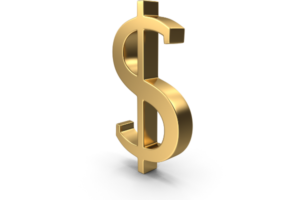It feels good knowing you’ve paid off your credit card, right? Well, besides that feeling of utter accomplishment, it also boosts your credit score.
What is a credit score, you might ask? It’s a three-digit number that dictates the reliability in which you will pay your bills on time. It displays how well you manage your credit and tells lenders how safe or risky it might be to lend you money.
Your credit score is calculated using a formula based on your credit report.
Your credit score will change over time as your credit report is updated.
We’ll explore how credit is used, the benefits of paying off your credit, the pros and cons of buying now and paying later, and more.
So without further delay, let’s get into the nitty-gritty world of credit scores.
How is my credit score used?
You might ask yourself, “What’s the point of a credit score?” Well, we have your answers.
A credit score is used to help lenders, like banks, loan agencies, and mortgage brokers decide how likely they will be repaid on time if they give a person a loan or a credit card. It can also dictate the amount you might be given for a loan based on risk. Your credit score is built on your credit history and is displayed as a three-digit number towards your score.
So, for example, if you find yourself needing a car, or you’re a student paying for your courses or someone looking to buy a house, your credit score will be looked at should you look into getting a loan to help you pay for these things.
By being responsible with your credit and paying bills off on time, you can increase your score. Failing to pay off credit in time or delaying payments will result in you having to pay interest and your score dropping.
Credit Score Ratings and What They Mean
Credit score ranges vary based on the credit scoring model used but are generally similar to the following examples:
300-579: Poor
580-669: Fair
670-739: Good
740-799: Very good
800-850: Excellent
The lower your score is, the more unlikely your chances of obtaining any loan support as you are deemed a risk. Keeping your credit score on the higher spectrum will open doors of opportunity to get loans for your financial needs.
Examples of bad credit practices:
Missing payments
Using too much available credit
Applying for a lot of credit in a short time
Defaulting on accounts
Examples of good credit practices:
Paying your bills on time
Paying down debt
Making any outstanding payments
Disputing inaccurate information on your report
Limiting new credit requests
By keeping on top of your spending and consistently paying off your credit on time, you will be in the green.
The Pros and Cons of Buying Now and Paying Later
The concept of buying now and paying later (BNPL) can be pretty enticing, especially to those who budget or have a tight income. It’s becoming more and more prevalent, especially around commercially busy holiday seasons.
While this payment option sounds like a great idea, it can come with risks to the consumer. Often when people get wrapped up in pay later plans, they feel they can spend more. Eventually, the bills rack up, and they end up owing a bunch of accumulated payments. Interest and late fees start to rear their ugly heads, which can harm your overall credit score.
Shopping online can be risky for BNPL as we keep adding things to our virtual shopping cart, and before you know it, we’ve received some overwhelming charges.
However, by being aware of your spending habits and maintaining budgets, buying now and paying later can benefit your credit score over time. Keeping on top of your payments as they come in can increase your credit score at a steady pace. Just don’t get carried away!
At some point, we’re all guilty of overspending, especially during the holidays.
How Can I Protect Myself and Boost My Credit Score?
You’re probably thinking to yourself, “Well heck, this stuff seems pretty scary; how can I protect myself from bad credit?” The answer is pretty simple, and it takes minimal effort.

1. Know the system.
BNPL is very enticing, and you can go down a rabbit hole in the process, which brings you to overspending, especially on wants over needs.
Watch your spending and keep your budget on track, so you don’t wind up owing interest and putting yourself in debt.

2. Avoid missing payments.
Interest-free payments can often lure people into a false sense of security. Getting too comfortable and assuming it’s okay to pay later can come with consequences, especially when you miss the due date.
Budget yourself! Be aware of when your payments need to be made, and always be sure you have enough to pay the fee when the time comes. Making a list of things you need can stop you from buying things you want. We know how hard it is not to buy those shiny new shoes to add to your collection at home.

3. Don’t spend if you don’t have to.
Deals on items are enticing, especially when they have a BNPL plan attached to them. However, just because the sale is sweet doesn’t make it a good purchase for you in the long run.
If it becomes difficult, you can ask yourself, “Do I need this item now?” to give yourself a push to keep you from spending if you’re not sure.
Buying now and paying later doesn’t have to be a bad thing. You can make it work for you to improve your overall credit. If you’re still feeling unsure, you can always speak with a certified financial planner or an advisor from your bank to help you with any questions you might have.
If you’re still feeling unsure, you can always contact us, and we can help you with any questions you might have.




